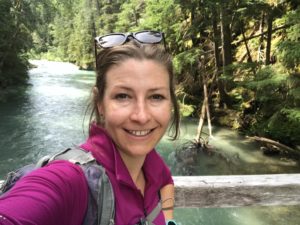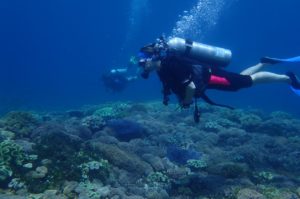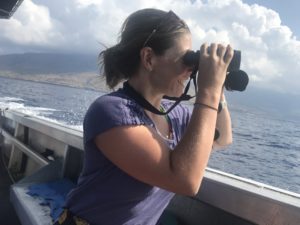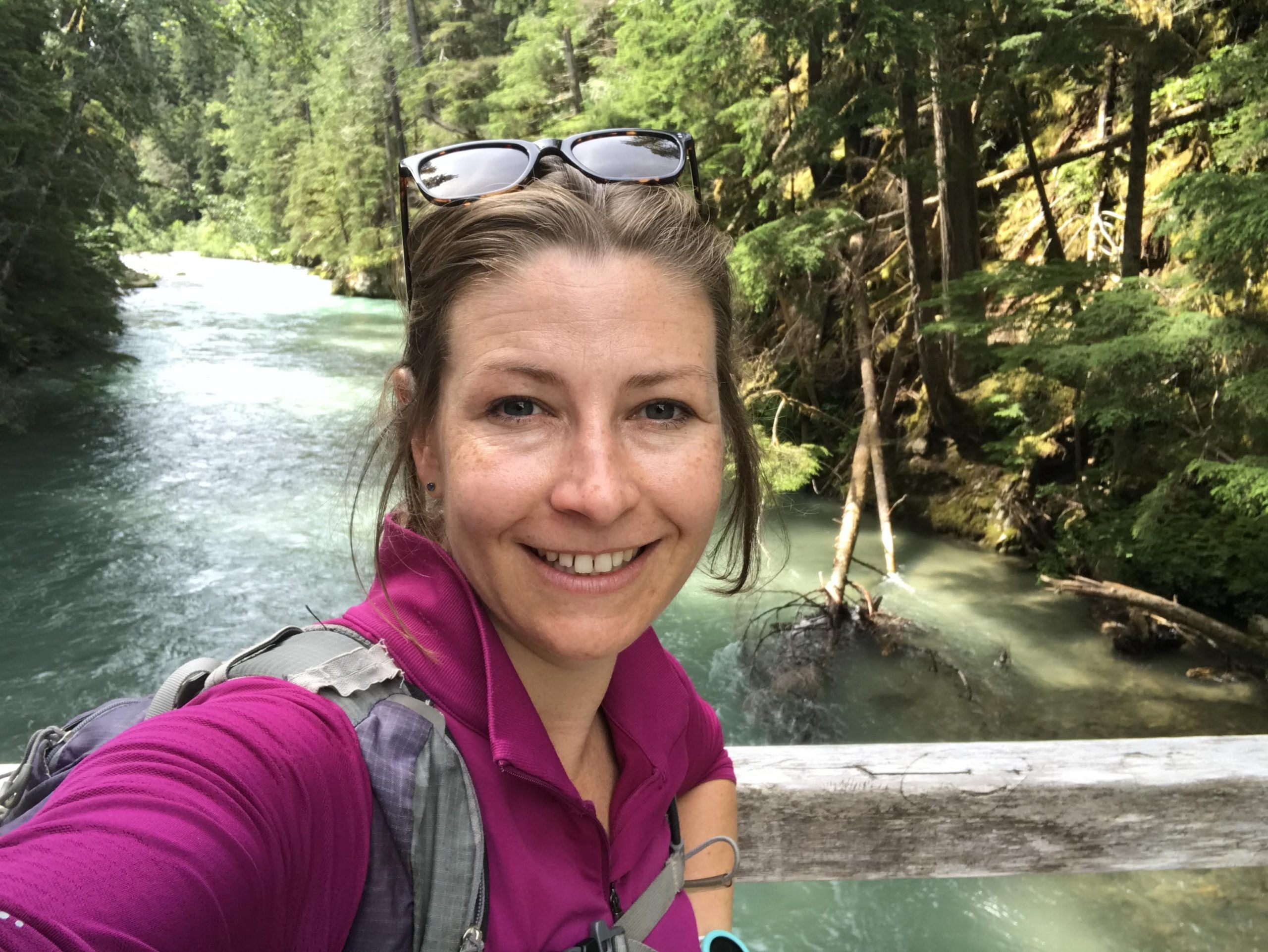Our world-leading marine research underpins a wide range of undergraduate and postgraduate programmes: Research-led teaching | Exeter Marine | University of Exeter. In this #MScGraduateInFocus series we are looking back on some of our MSc graduates who have excelled in conservation around the world since studying with us.
Today we meet Victoria Jeffers, MSc Conservation and Biodiversity graduate (2014) and now the Head of Implementation – Global Conservation Programmes at Blue Ventures!

Hi Tori! It’s been five years since you studied with us, why don’t you tell us a little bit about your career to date?
Prior to undertaking the masters at Penryn, I worked for seven years in project management roles for not for profit organisations. In 2013, I decided to study for a masters to improve my research and conservation skills. Immediately after completing my masters I was lucky to get a role with Blue Ventures Conservation in Madagascar, coordinating their shark monitoring project which used smartphones to record shark catch. I moved back to the UK as Conservation Programmes Assistant and over the last 4 years have transitioned through a series of roles. I am now responsible for managing Blue Ventures’ conservation programmes in Belize, Timor-Leste and Indonesia, the UK-based Grants Management team, and overseeing progress against our conservation strategy in all of our sites of direct implementation.
You mention you already had several years experience before embarking on an MSc, what made you choose to study with us at the University of Exeter Cornwall Campus?
I chose to study at the Penryn campus due to the variety of modules offered, the course content and the location. The course structure and content were appealing as it was diverse and covered a broad range of topics/module choices. I enjoyed the course structure, the friendly lecturers and the campus – being by the sea is great!
I stayed off campus and didn’t have much time to use the full range of facilities and partake in social activities, but there is certainly lots to do. Proximity to the sea expands these opportunities (diving, surfing etc)

Excellent, what skills did you learn that helped you to develop further in your career?
So many. I learnt a lot on the technical side from the field trips, especially the overseas trip to Kenya. I also learnt a lot of softer skills through independent study and particularly my thesis which involved polishing and honing a lot of skills I hadn’t used for a while.
I learnt a lot about basic programming using R which would be super helpful for all jobs in this field.
Finally, why did you choose you career in project management and do you have any advice for anyone looking to pursue a similar career?
I chose this career to have an impact on the future state of the planet.
I enjoy that my role is very varied, involving activities from leading a team to manage the grants that facilitate our work, to designing decision making tools for teams, to trouble-shooting issues with field teams. I spend a lot of time communicating with, supporting and visiting staff all over the world and I enjoy seeing my support efforts being translated into action and impact in the field.
To have an impact in conservation you have to think about and work closely with communities. To be able to do this you need to have strong soft skills and well as technical skills so I recommend you develop good people skills and the abilities to listen, empathise and problem solve.
Get lots of experience, voluntary or otherwise. Approach organisations knowing what your skills and interests are and how you can best help the organisation in question. Study the website and language of the organization you want to work for and emulate it.
Thanks Victoria!

You can follow Victoria (@Tori_FJ) and BlueVentures (@BlueVentures) on Twitter
If you want to find out more about any of our suite of #ExeterMarine Masters and Undergraduate courses use the links below!
- NEW: MSc in Marine Vertebrate Ecology and Conservation
- MSc in Conservation and Biodiversity
- MSc in Conservation Science and Policy
- MSc in Evolutionary and Behavioural Ecology
- MSc in Sustainable Development
- MSc in Environment and Human Health
- MSc in Renewable Energy Engineering
- BSc Marine Biology
- BSc Zoology
- BSc Environmental Science
- BSc Conservation Biology and Ecology
- BSc Evolutionary Biology
- BSc Animal Behaviour
- BEng Renewable Energy Engineering

